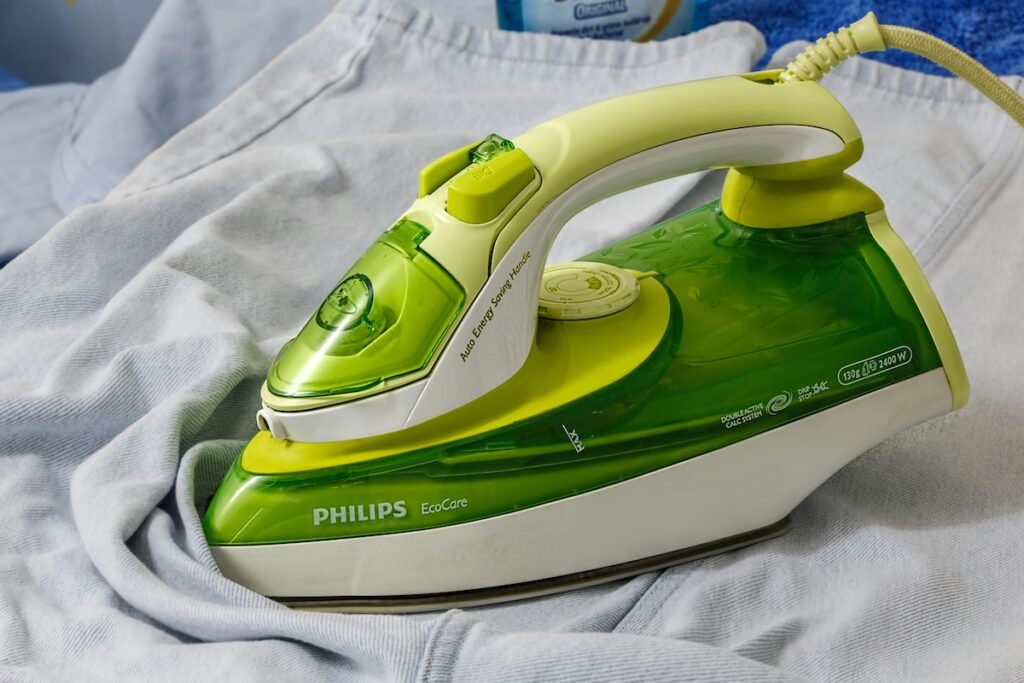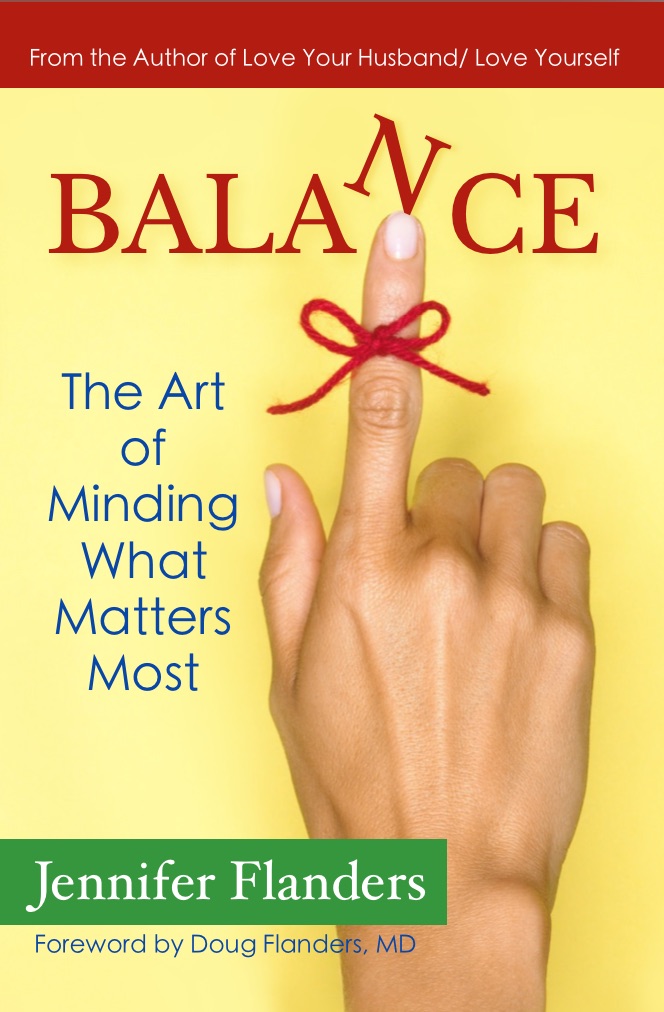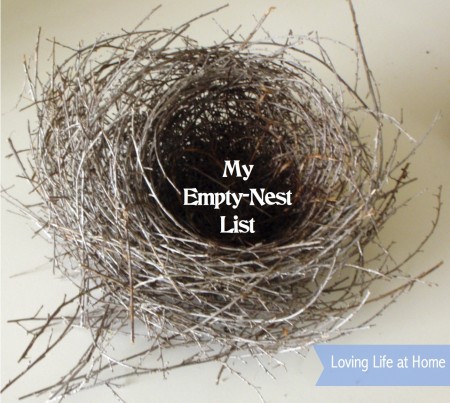Perfectionism Is a Trap

My father was a general contractor. He was also a perfectionist — not a perfectionist about everything, mind you, but certainly a perfectionist about his work.
When Daddy did a job, he did it right. When he built something, he built it to last. If you hired my father to do a project, he’d deliver beautiful results… but it would take him forever and a day to finish it.
That’s because perfectionism is often at odds with productivity. In fact, sometimes perfectionism can be downright paralyzing.
Does perfectionism have you trapped?
I didn’t understand that fact when I first married. Back then, perfectionism seemed to me a good thing. Why, I wanted to do everything perfectly.
And that included ironing.
My goal: to keep my husband’s closet stocked with painstakingly-pressed, wrinkle-free clothes, so that anything he needed would always be clean and ready to wear.
My reality: I’d spend a full hour at the ironing board and have only two shirts to show for it. Doug would wear the first, the second would hang in an otherwise empty closet, and the rest of his wardrobe would languish in the bottom of a laundry basket awaiting my next regularly scheduled ironing day.
This frustratingly inefficient pattern continued until my husband convinced me to change my technique.
“You can’t spend thirty minutes ironing a single shirt,” he insisted. “Spend three minutes max. I’d rather have ten shirts with the biggest wrinkles ironed out than one that’s pressed to perfection and nine more that look like I’ve slept in them.”
That sounded reasonable enough. So I tried it his way, and — guess what? — it worked.

But old habits die hard, and I’ve needed (and received) more than a few reminders over the years — and not only as the principle pertains to ironing.
I am grateful for my husband’s balancing influence. He has a no-nonsense approach to most chores, and his tactics have forced me to rethink a lot of the myths I had carried into marriage with me.
Maybe it’s time for you to rethink them, too:
Myth #1: “Any job worth doing is worth doing right.”
Au contraire. Some jobs are important enough (and time is short enough) that we must settle for doing them half-way. When my toddler eats a chocolate donut on the way to church and smears icing in her hair and on her dress, she might benefit from a full bath and a change of clothes, but circumstances dictate that I clean her up with a wet wipe instead.
Of course, the donut itself was a compromise. “Doing the job right” would mean serving my family a well-balanced, home-cooked breakfast every day, wouldn’t it? But when we’re pressed for time, grabbing a donut on the go is better than letting them starve (though some of you hard-core nutritionists might disagree with me on that).
This same principle applies to spiritual food as well as physical. Beginning each day with an uninterrupted hour of Bible study and prayer is a great goal, but on mornings when that plan doesn’t pan out, meditating on memory verses and praying while you work sure beats skipping your quiet time altogether.
Myth #2: “Never put off till tomorrow what you can do today.”
There’s a big difference between procrastinating and prioritizing. Sometimes putting something off for another day (or even another season of life) is the most prudent course of action we can take.
There are only so many hours in a day and only so much one person can (or should) accomplish in that time period. We must invest that time and energy in the things that matter most.
The trick is in discerning what truly matters. “Important” doesn’t always mean “big.” In God’s economy — and especially for those of us with young children still at home — the things that matter most are often quite small.
Myth #3: “If you want a job done right, you’ve got to do it yourself.”
Just because you are capable of doing a job and doing it right does not make you the person to do it. Our time, again, is limited. There is no shame in acquiring help, expert or otherwise (which is why we now send my husband’s dress shirts out to be laundered).
Moreover, it is of vital importance that our children develop a strong work ethic. A competent mother who insists on doing every job herself to make sure it’s done right is effectively robbing her children of the opportunity to develop life skills that will serve them well in the future.
Our children’s work may not meet up to our standards initially, but it is important that we recognize and appreciate their efforts, nonetheless, and provide them with ample opportunity for improvement.
Myth #4: “The important thing is to always do your best.”
Doing our best in one area will often mean neglecting another. That can cause problems, especially when the thing we are presently doing is not as important as the thing we should be doing or need to do next.
This (partly) explains why I am such a slow and sporadic blogger. As much as I enjoy writing and feel compelled to do so, my responsibilities as a wife and mother trump my aspirations as a writer. And so, during this season of training little ones and homeschooling our eight children still at home, I try to keep book projects and blog posts on the back burner during their wakeful hours.
That’s the sentiment behind the poem, “Rocking My Baby.” We could clean house all day and still find corners that need attention (or post and pin and share and tweet every spare minute, but still find more to say). Dust and cobwebs (and social media) we’ll always have with us, but our babies will eventually grow up and leave home. We must redeem the time we’ve been given with them wisely.
So what does all this mean? Rather than always striving to do our best, or to do everything ourselves, or to do it all now, perhaps we should focus instead on maintaining balance. Diligently do the things that matter most with excellence, then tend to less significant duties with due (but not undue) care and consistency.
That’s my goal. Won’t you join me?
And if you’ve debunked any other myths in your search for balance, be sure to share those, as well.
Go To >>Life Lesson #5







def. agree about needing reminders of how to avoid perfectionism; thanks for one of them!
Trying not to fall into the trap of perfectionism requires trial and error, but worth it. I have similar issues, it can be difficult to determine where we are to put forth effort and what we are to let go of. It’s an ongoing learning process. Great post, keep it up!